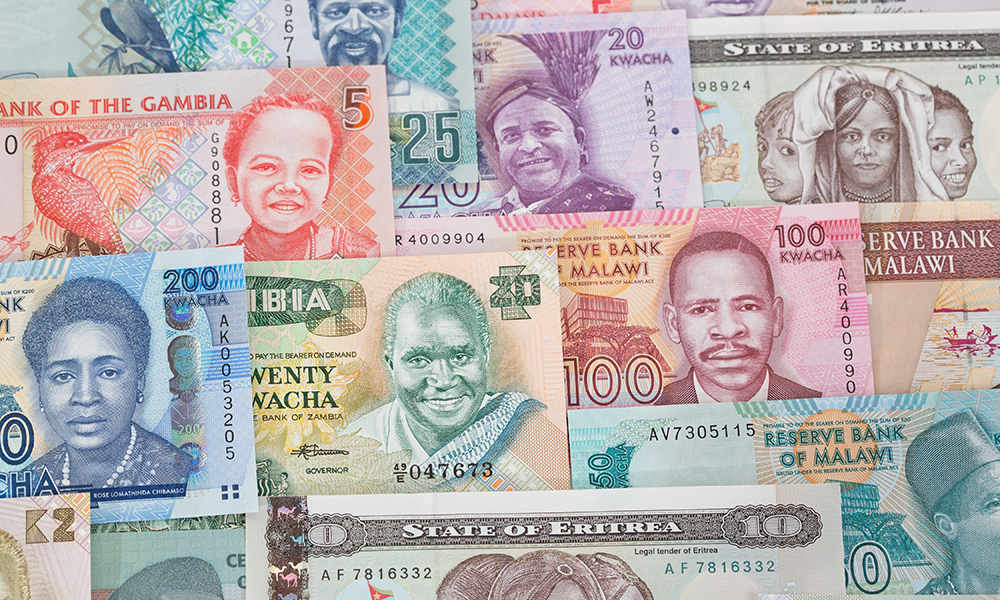
在當(dāng)今高度互聯(lián)的世界里,,跨境資金流動(dòng)可能成為整個(gè)國(guó)家的生命線,也可能變成瓶頸,。長(zhǎng)期以來,,全球金融體系一直更有利于發(fā)達(dá)國(guó)家,諸多發(fā)展中國(guó)家只能努力應(yīng)對(duì)經(jīng)濟(jì)不平等以及隨之而來的政治動(dòng)蕩,。然而,,Web3技術(shù)正利用金融普及和經(jīng)濟(jì)賦權(quán)的新工具繞過現(xiàn)有秩序。世界將面臨轉(zhuǎn)型,,比特幣(Bitcoin)和USDC等數(shù)字貨幣正逐漸縮小差距,,改變?nèi)藗兊纳睢?/p>
試想下:從尼日利亞匯款至加納,花的時(shí)間居然比親自開車穿過邊境送錢更久,,成本也更高,。為什么?因?yàn)閭鹘y(tǒng)電匯要先經(jīng)過紐約和倫敦才能返回非洲,。
尼日利亞的迪克森·恩索福爾等創(chuàng)新者發(fā)現(xiàn),,人們需要更便捷的方式。四年前恩索福爾就已開始嘗試,,創(chuàng)立了泛非支付基礎(chǔ)設(shè)施公司Korapay,。他把區(qū)塊鏈和加密貨幣當(dāng)成交換媒介,而不是投機(jī)資產(chǎn),。在該思路指導(dǎo)下,,他創(chuàng)建了利用Web3相關(guān)發(fā)明跨境支付的平臺(tái),。
如今,Korapay已經(jīng)是尼日利亞規(guī)模最大的企業(yè)到企業(yè)跨境匯款機(jī)構(gòu),。公司利用比特幣,、USDC和其他加密資產(chǎn)處理數(shù)十億美元的支付,同時(shí)以傳統(tǒng)法定貨幣結(jié)算交易,。值得注意的是,,很多跨國(guó)公司使用Korapay的服務(wù)將尼日利亞奈拉兌換成美元的同時(shí),根本不知道過程中使用了加密貨幣和穩(wěn)定幣,。這表明,,恩索福爾之類的創(chuàng)新者已徹底重組傳統(tǒng)金融的運(yùn)轉(zhuǎn)機(jī)制。
為什么USDC等穩(wěn)定幣在非洲如此流行,?關(guān)鍵在于經(jīng)濟(jì)差距明顯的大背景,、貨幣不穩(wěn)定的現(xiàn)實(shí)以及金融獨(dú)立的愿望。
舉個(gè)例子,,尼日利亞超過40%的人口年齡不到15歲,。不少年輕人希望借助加密貨幣突破本地貨幣限制。隨著移動(dòng)互聯(lián)網(wǎng)滲透率提升,,現(xiàn)在自由職業(yè)者和零工可選擇以數(shù)字資產(chǎn)獲得報(bào)酬,,因?yàn)閿?shù)字資產(chǎn)保值率比起受惡性通脹和市場(chǎng)貶值影響的本地法定貨幣要好。在為我的新書《Web3:互聯(lián)網(wǎng)下一個(gè)經(jīng)濟(jì)和文化前沿》進(jìn)行的一次采訪中,,恩索福爾告訴我,,公司里的尼日利亞年輕員工都更喜歡用USDC、USDT甚至比特幣支付工資,,而不是尼日利亞奈拉,,因?yàn)閿?shù)字資產(chǎn)保值能力更強(qiáng),如果用穩(wěn)定幣的話用處還更大,。
美元化轉(zhuǎn)變的現(xiàn)象,,也就是說本地人比起法定貨幣更喜歡USDC等資產(chǎn)的影響其實(shí)遠(yuǎn)超過金融方面的便利。這一趨勢(shì)代表著經(jīng)濟(jì)機(jī)會(huì)巨大轉(zhuǎn)變:個(gè)人可以在全世界任何地方的互聯(lián)網(wǎng)組織工作,,通過穩(wěn)定的數(shù)字資產(chǎn)積累財(cái)富,。
目前來看,經(jīng)濟(jì)體美元化對(duì)世界的影響最終算不算積極尚不清楚,。美元化過程中如果本地貨幣崩潰,,動(dòng)蕩地區(qū)脆弱政府的穩(wěn)定性可能進(jìn)一步動(dòng)搖。例如,,尼日利亞央行剛開始對(duì)加密貨幣持?jǐn)硨?duì)立場(chǎng),,甚至發(fā)布禁令。盡管最近該國(guó)領(lǐng)導(dǎo)人暗示要為穩(wěn)定幣和代幣搭建監(jiān)管框架,,但相關(guān)舉措的后果仍不明朗,。去年在沙特阿拉伯一場(chǎng)商界和政府領(lǐng)導(dǎo)人會(huì)議上,,巴基斯坦央行行長(zhǎng)雷扎·巴基爾表示,該行正考慮禁止所有數(shù)字資產(chǎn),,原因就是擔(dān)心美元化,。他擔(dān)心自己執(zhí)掌銀行會(huì)失去對(duì)貨幣和利率的控制,為此愿意采取嚴(yán)厲措施,。禁令并未施行,,巴基爾也已經(jīng)離開該崗位。
盡管面臨種種挑戰(zhàn),,數(shù)字資產(chǎn)的應(yīng)用仍在繼續(xù),。就連聯(lián)合國(guó)難民署都開始利用區(qū)塊鏈技術(shù),,向?yàn)蹩颂m等戰(zhàn)爭(zhēng)地區(qū)的流離失所者發(fā)放數(shù)字現(xiàn)金,。此舉不僅可以保護(hù)資金,也凸顯了數(shù)字資產(chǎn)廣泛的吸引力,。
加密貨幣和區(qū)塊鏈技術(shù)在非洲及其他地區(qū)迅速應(yīng)用,,不僅僅是金融領(lǐng)域的趨勢(shì):剛開始是生存策略,隨后發(fā)展成為經(jīng)濟(jì)繁榮的平臺(tái),。最重要的是,,這證明了發(fā)展中世界人們的韌性和創(chuàng)新能力。為所有人打造更包容也更公平的金融未來方面,,確實(shí)應(yīng)該充分承認(rèn)Web3的潛力,。(財(cái)富中文網(wǎng))
亞歷克斯·塔普斯科特是《Web3:互聯(lián)網(wǎng)下一個(gè)經(jīng)濟(jì)和文化前沿》一書作者?!敦?cái)富》網(wǎng)站評(píng)論文章僅為作者本人觀點(diǎn),,不代表《財(cái)富》的觀點(diǎn)。
譯者:夏林
在當(dāng)今高度互聯(lián)的世界里,,跨境資金流動(dòng)可能成為整個(gè)國(guó)家的生命線,,也可能變成瓶頸。長(zhǎng)期以來,,全球金融體系一直更有利于發(fā)達(dá)國(guó)家,,諸多發(fā)展中國(guó)家只能努力應(yīng)對(duì)經(jīng)濟(jì)不平等以及隨之而來的政治動(dòng)蕩。然而,,Web3技術(shù)正利用金融普及和經(jīng)濟(jì)賦權(quán)的新工具繞過現(xiàn)有秩序,。世界將面臨轉(zhuǎn)型,比特幣(Bitcoin)和USDC等數(shù)字貨幣正逐漸縮小差距,,改變?nèi)藗兊纳睢?/p>
試想下:從尼日利亞匯款至加納,,花的時(shí)間居然比親自開車穿過邊境送錢更久,成本也更高,。為什么,?因?yàn)閭鹘y(tǒng)電匯要先經(jīng)過紐約和倫敦才能返回非洲,。
尼日利亞的迪克森·恩索福爾等創(chuàng)新者發(fā)現(xiàn),人們需要更便捷的方式,。四年前恩索福爾就已開始嘗試,,創(chuàng)立了泛非支付基礎(chǔ)設(shè)施公司Korapay。他把區(qū)塊鏈和加密貨幣當(dāng)成交換媒介,,而不是投機(jī)資產(chǎn),。在該思路指導(dǎo)下,他創(chuàng)建了利用Web3相關(guān)發(fā)明跨境支付的平臺(tái),。
如今,,Korapay已經(jīng)是尼日利亞規(guī)模最大的企業(yè)到企業(yè)跨境匯款機(jī)構(gòu)。公司利用比特幣,、USDC和其他加密資產(chǎn)處理數(shù)十億美元的支付,,同時(shí)以傳統(tǒng)法定貨幣結(jié)算交易。值得注意的是,,很多跨國(guó)公司使用Korapay的服務(wù)將尼日利亞奈拉兌換成美元的同時(shí),,根本不知道過程中使用了加密貨幣和穩(wěn)定幣。這表明,,恩索福爾之類的創(chuàng)新者已徹底重組傳統(tǒng)金融的運(yùn)轉(zhuǎn)機(jī)制,。
為什么USDC等穩(wěn)定幣在非洲如此流行?關(guān)鍵在于經(jīng)濟(jì)差距明顯的大背景,、貨幣不穩(wěn)定的現(xiàn)實(shí)以及金融獨(dú)立的愿望,。
舉個(gè)例子,尼日利亞超過40%的人口年齡不到15歲,。不少年輕人希望借助加密貨幣突破本地貨幣限制,。隨著移動(dòng)互聯(lián)網(wǎng)滲透率提升,現(xiàn)在自由職業(yè)者和零工可選擇以數(shù)字資產(chǎn)獲得報(bào)酬,,因?yàn)閿?shù)字資產(chǎn)保值率比起受惡性通脹和市場(chǎng)貶值影響的本地法定貨幣要好,。在為我的新書《Web3:互聯(lián)網(wǎng)下一個(gè)經(jīng)濟(jì)和文化前沿》進(jìn)行的一次采訪中,恩索福爾告訴我,,公司里的尼日利亞年輕員工都更喜歡用USDC,、USDT甚至比特幣支付工資,而不是尼日利亞奈拉,,因?yàn)閿?shù)字資產(chǎn)保值能力更強(qiáng),,如果用穩(wěn)定幣的話用處還更大。
美元化轉(zhuǎn)變的現(xiàn)象,,也就是說本地人比起法定貨幣更喜歡USDC等資產(chǎn)的影響其實(shí)遠(yuǎn)超過金融方面的便利,。這一趨勢(shì)代表著經(jīng)濟(jì)機(jī)會(huì)巨大轉(zhuǎn)變:個(gè)人可以在全世界任何地方的互聯(lián)網(wǎng)組織工作,通過穩(wěn)定的數(shù)字資產(chǎn)積累財(cái)富。
目前來看,,經(jīng)濟(jì)體美元化對(duì)世界的影響最終算不算積極尚不清楚,。美元化過程中如果本地貨幣崩潰,動(dòng)蕩地區(qū)脆弱政府的穩(wěn)定性可能進(jìn)一步動(dòng)搖,。例如,,尼日利亞央行剛開始對(duì)加密貨幣持?jǐn)硨?duì)立場(chǎng),甚至發(fā)布禁令,。盡管最近該國(guó)領(lǐng)導(dǎo)人暗示要為穩(wěn)定幣和代幣搭建監(jiān)管框架,,但相關(guān)舉措的后果仍不明朗。去年在沙特阿拉伯一場(chǎng)商界和政府領(lǐng)導(dǎo)人會(huì)議上,,巴基斯坦央行行長(zhǎng)雷扎·巴基爾表示,,該行正考慮禁止所有數(shù)字資產(chǎn),原因就是擔(dān)心美元化,。他擔(dān)心自己執(zhí)掌銀行會(huì)失去對(duì)貨幣和利率的控制,,為此愿意采取嚴(yán)厲措施。禁令并未施行,,巴基爾也已經(jīng)離開該崗位,。
盡管面臨種種挑戰(zhàn),,數(shù)字資產(chǎn)的應(yīng)用仍在繼續(xù),。就連聯(lián)合國(guó)難民署都開始利用區(qū)塊鏈技術(shù),向?yàn)蹩颂m等戰(zhàn)爭(zhēng)地區(qū)的流離失所者發(fā)放數(shù)字現(xiàn)金,。此舉不僅可以保護(hù)資金,,也凸顯了數(shù)字資產(chǎn)廣泛的吸引力。
加密貨幣和區(qū)塊鏈技術(shù)在非洲及其他地區(qū)迅速應(yīng)用,,不僅僅是金融領(lǐng)域的趨勢(shì):剛開始是生存策略,,隨后發(fā)展成為經(jīng)濟(jì)繁榮的平臺(tái)。最重要的是,,這證明了發(fā)展中世界人們的韌性和創(chuàng)新能力,。為所有人打造更包容也更公平的金融未來方面,確實(shí)應(yīng)該充分承認(rèn)Web3的潛力,。(財(cái)富中文網(wǎng))
亞歷克斯·塔普斯科特是《Web3:互聯(lián)網(wǎng)下一個(gè)經(jīng)濟(jì)和文化前沿》一書作者,。《財(cái)富》網(wǎng)站評(píng)論文章僅為作者本人觀點(diǎn),,不代表《財(cái)富》的觀點(diǎn),。
譯者:夏林
In today’s hyperconnected world, the flow of money across borders can be either a lifeline or a chokehold for entire nations. For too long, the global financial system has favored the privileged, leaving many countries in the Global South grappling with economic inequality and the political instability that comes with it. Web3 technologies, however, are routing around the incumbents, with new tools for financial inclusion and economic empowerment. It’s a story of transformation, where digital currencies like Bitcoin and USDC are bridging gaps and changing lives.
Consider this: Wiring money from Nigeria to Ghana takes longer and costs more than physically driving it across borders. Why? Because traditional wire transfers bounce through New York and London before returning to Africa.
Innovators like Nigeria’s Dickson Nsofor have recognized the need for a better way. Nsofor’s quest began four years ago when he founded Korapay, a Pan-African payment-infrastructure company. He viewed blockchain and cryptocurrencies as media of exchange, not as speculative assets. That insight led him to create a platform that leveraged these Web3 inventions for cross-border payments.
Today, Korapay is the largest cross-border business-to-business remitter in Nigeria. It processes billions in payments through Bitcoin, USDC, and other crypto assets while settling transactions in traditional fiat currencies. Most remarkable, many global companies use Korapay’s services to exchange Nigerian naira for U.S. dollars without even knowing they’re using cryptocurrencies and stablecoins. This shows how innovators like Nsofor are already retooling the engine of traditional finance from the bottom up.
Just why are stablecoins like USDC growing so popular in Africa? The answer lies in the broader context of economic disparities, currency instability, and the desire for financial independence.
In Nigeria, for example, over 40% of the population is younger than 15. Young people are embracing cryptocurrencies as a means of transcending the limitations of local currencies. With increased mobile internet penetration, freelancers and gig workers can now opt for payment in digital assets that hold their value better than local fiat currencies subject to hyperinflation and market devaluation. In an interview for my new book, Web3: Charting the Internet’s Next Economic and Cultural Frontier, Nsofor told me how every one of his young Nigerian employees would prefer to get paid in USDC, USDT, or even Bitcoin rather than naira because those assets are a better store of value, and in the case of stablecoins, more useful.
This shift toward dollarization—where locals prefer assets like USDC over fiat money—has implications far beyond financial convenience. It represents a seismic shift in economic opportunity: Individuals can work for internet-native organizations anywhere in the world and accumulate wealth in stable digital assets.
Whether the dollarization of these economies will be a net positive to the world is unclear. The collapse of local currencies under dollarization could further destabilize fragile governments in volatile regions. The Central Bank of Nigeria, for instance, initially took a hostile stance toward cryptocurrencies, even proposing a ban. While its leaders have recently hinted at creating a regulatory framework for stablecoins and tokens, the consequences of such moves remain uncertain. Last year, the governor of the Bank of Pakistan, Reza Baqir, told an assembly of business and government leaders in Saudi Arabia that his bank was considering a ban on all digital assets over concerns of dollarization. He was worried that the very bank he ran would cede control over money and interest rates, and was willing to take drastic measures. That ban never took effect, and Baqir is no longer in the job.
Despite these challenges, the adoption of digital assets marches on. Even the U.N. High Commissioner for Refugees has turned to blockchain technology to distribute digital cash to displaced persons in war-affected regions like Ukraine. This not only protects the funds but highlights the broader appeal of digital assets.
The adoption of cryptocurrencies and blockchain technology in Africa and beyond is more than a financial trend: At first, it’s a survival strategy, and then it’s a platform for thriving economically. Above all, it’s a testament to human resilience and innovation in the Global South. Let’s recognize Web3’s potential to create a more inclusive and equitable financial future for all.
Alex Tapscott is author of Web3: Charting the Internet’s Next Economic and Cultural Frontier. The opinions expressed in Fortune.com commentary pieces are solely the views of their authors and do not necessarily reflect the opinions and beliefs of Fortune.






